20, September 2022
United Nations’ massive annual summit returns in person to a world divided by multiple crises 0
The United Nations’ massive annual summit returns in person to a world divided by multiple crises starting with Ukraine. Senegalese President and African Union Chairperson Macky Sall, Turkish President Recep Tayyip Erdogan and French President Emmanuel Macron addressed the assembly on Tuesday.
After two years of pandemic restrictions and video addresses, the UN General Assembly is again asking leaders to come in person if they wish to speak — with a sole exception made for Ukrainian President Volodymyr Zelensky.
But the death of Queen Elizabeth II disrupted the summit anew. President Joe Biden of the United States, by tradition the second speaker on the first day, will instead speak on Wednesday.
The first day will feature French President Emmanuel Macron and German Chancellor Olaf Scholz, the leaders of the two largest economies of the European Union, which has mobilized to impose tough sanctions over Russia’s invasion of Ukraine.
“This year, Ukraine will be very high on the agenda. It will be unavoidable,” top EU diplomat Josep Borrell told reporters in New York.
“There are many other problems, we know. But the war in Ukraine has been sending shock waves around the world.”
German Foreign Minister Annalena Baerbock vowed to support countries hardest hit by the fallout from the war as she headed to the General Assembly on Tuesday.
“The brutality of Russia’s war of aggression and its threat to the peace order in Europe have not blinded us to the fact that its dramatic effects are also clearly being felt in many other regions of the world,” Baerbock said.
But UN Secretary-General Antonio Guterres has been urging leaders not to forget other priorities such as education, the topic of a special summit on Monday.
“Education is in a deep crisis. Instead of being the great enabler, education is fast becoming the great divide,” Guterres told the summit.
He warned that the Covid-19 pandemic has had a devastating impact on learning, with poor students lacking technology at a particular disadvantage, and conflicts further disrupting schools.
In a report earlier this month, the UN Development Programme said Covid has set back humanity’s progress by five years.
With the Ukraine war leading to a global grain crisis, hunger could be another major issue on the agenda. On Tuesday, more than 200 NGOs called for urgent action from leaders gathered for the General Assembly to “end the spiralling global hunger crisis.”
“Around the world, 50 million people are on the brink of starvation in 45 countries,” they said, adding that as many as 19,700 people are estimated to be dying of hunger every day, which translates to one person every four seconds.
Talks between rivals
Other leaders to speak Tuesday include Turkish President Recep Tayyip Erdogan, who has staked out ground as a broker between Russia and Ukraine, including through a deal to ship out badly needed grain to the world.
Erdogan is also expected to meet in New York with Israeli Prime Minister Yair Lapid, a dramatic rebound in relations after the Turkish leader’s strident criticism of the Jewish state’s treatment of Palestinians.
In the type of last-minute diplomacy common at previous UN sessions, US Secretary of State Antony Blinken convened a first meeting of the foreign ministers of Azerbaijan and Armenia since a flare-up in fighting.
“Strong, sustainable diplomatic engagement is the best path for everyone,” Blinken told them.
Russian Foreign Minister Sergei Lavrov was visiting despite a hostile reaction from the United States.
He met Monday with his French counterpart, Catherine Colonna, who urged Russia to allow a security zone outside the Zaporizhzhia nuclear plant, whose occupation by Moscow has raised mounting concerns.
Also high on the agenda for the UN week will be Iran, whose hardline president, Ebrahim Raisi, is traveling to the General Assembly for the first time and will meet Tuesday with French President Emmanuel Macron.
In a US television interview ahead of his arrival, Raisi said that Iran wanted “guarantees” before returning to a nuclear deal that former president Donald Trump trashed in 2018.
“We cannot trust the Americans because of the behavior that we have already seen from them. That is why if there is no guarantee, there is no trust,” he told CBS News’ “60 Minutes” program.
Biden supports a return to the 2015 agreement, under which Iran drastically scaled back nuclear work in return for promises of sanctions relief.
But the Biden administration says it is impossible in the US system to promise what a future president would do.
“There is no better offer for Iran,” Colonna said ahead of the meeting with Macron.
“It’s up to them to make a decision,” she said.
Raisi can expect to be dogged by protests during his visit including by exile groups that have called for his arrest over mass executions of opponents a decade after the 1979 Islamic revolution.
Source: AFP

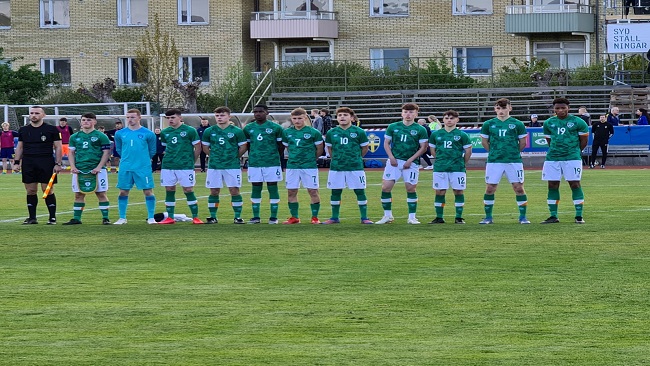

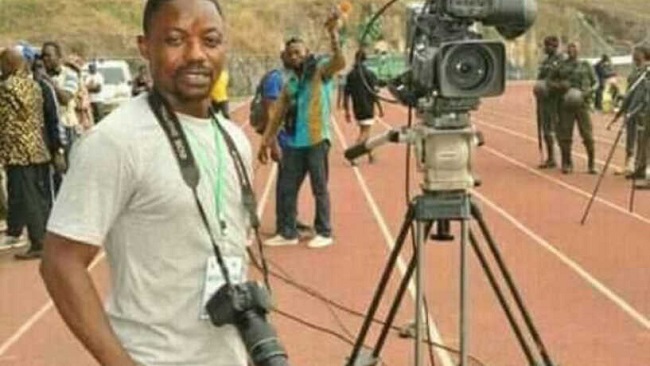


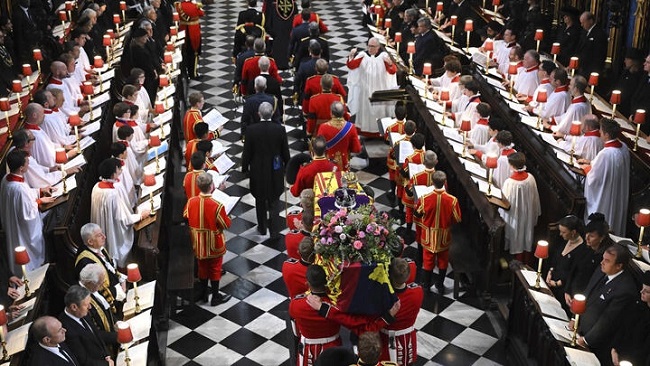
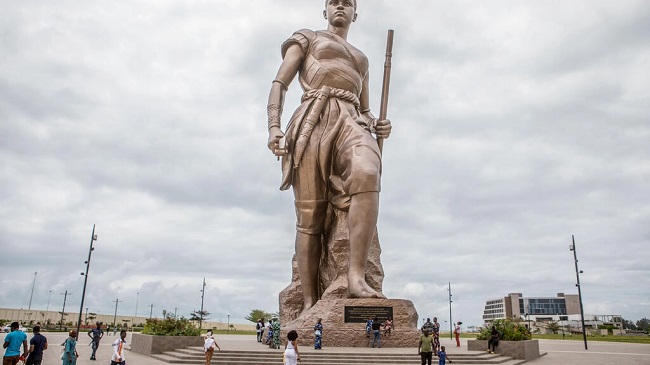
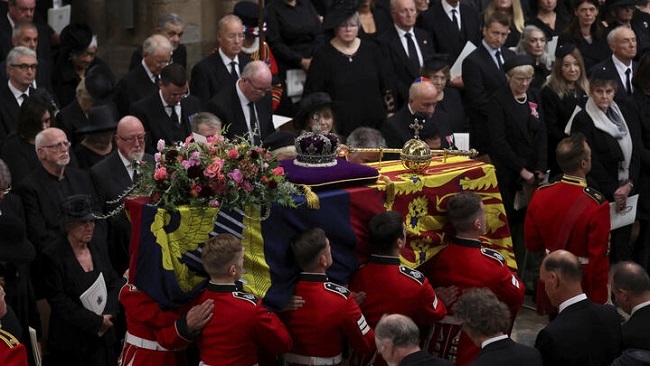












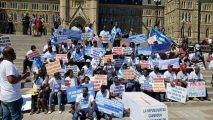
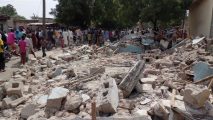



21, September 2022
Southern Cameroons Crisis: Children should be able to return to school 0
Since 2016, fighting between separatist insurgents and the military has disrupted the education of over 700,000 children in Cameroon’s two Anglophone regions. As the school year starts in September, education in the conflict-affected regions is at risk again. The two sides should strive to protect schools from being attacked and keep classrooms open.
At the start of Cameroon’s academic year on 5 September, schools in the two Anglophone regions kept their doors shut to comply with a general strike (locally known as a “ghost town” operation) imposed by separatist militias combating the government in Yaoundé. The following day, only a handful of schools offered classes, primarily in the relatively safe towns of Buea and Limbe.
School’s out
Some separatist groups have ordered public schools in the Anglophone regions to remain closed until at least 1 October. On that day five years ago, separatists proclaimed the independent Federal Republic of Ambazonia, as they call the North West and South West regions. In response to the boycott, government officials said they considered shuttering so-called community schools, which are run by volunteers in separatist-controlled areas.
Civilians have borne the brunt of the fighting between separatist militias and Cameroon’s security forces. The conflict has killed about 6,000 people, displaced more than 500,000 and severely disrupted access to government services in the Anglophone regions. Attempts by Anglophone peace campaigners and foreign facilitators to resolve the conflict peacefully have stalled. Sadly, as Cameroon’s conflict parties repeatedly use access to education to push their political objectives, children are paying a disproportionately high price. The UN estimates that two of every three schools in the North West and South West have closed indefinitely.
The Anglophone crisis began in 2017 when lawyers and teachers staged peaceful protests aimed at preserving the two regions’ distinct legal and educational systems. At the time, unions and civil society organisations called for a school boycott in order to push for negotiations with the government and demand the release of detained Anglophone activists. A heavy-handed army crackdown on protesters calling for the two regions’ secession from Francophone Cameroon then hardened the resolve of many Anglophones, triggering armed rebellion.
Yet, though popular at first, the school boycott quickly lost support as separatist militias began destroying schools and killing teachers who continued working. Tens of thousands of children were denied the chance to go to school for months on end, sometimes years. By 2018, an estimated 4,000 Anglophone schools had shuttered, eventually depriving over 700,000 children of regular classes for almost four academic years.
Some died in the mayhem, too. In October 2020, suspected separatists stormed a private school in the town of Kumba, slaughtering at least seven children and injuring thirteen others. In 2021, separatists killed four students and a French language teacher in Ekondo Titi.
The lack of access to quality education is worsening the already dire socio-economic crisis plaguing the Anglophone regions. Pressure from Anglophone civil society prompted some separatist groups to formally call off the school boycott in 2020, but attacks on schools continue unabated. Overall, the conflict has severely harmed the education system. Schools that are still operational are often damaged or overcrowded. Teachers have fled, without being replaced. Parents who can afford to do so are now sending their children to schools in the Francophone regions.
Disproportionate struggles
The targeting of schools has had a particularly pernicious impact on girls. Parents who have seen their incomes dwindle prefer to send their boys to school, keeping girls at home to help with chores or small trades. Yet others who have fled to Cameroon’s Francophone regions have to fend for themselves, sometimes leaving their daughters out of school and vulnerable to recruitment into sex work.
Despite successful campaigning against the school boycott by Anglophone communities and women groups over the past two years, the latest tug of war over education risks robbing thousands of children of the chance to learn yet again. More critically, it could set the scene for another military escalation by raising tensions ahead of 1 October, when separatist sympathisers typically hold anti-government protests.
Instead of calling for a school boycott or threatening to close voluntary learning centres, Cameroon’s conflict parties should use the start of the school year as an opportunity to mitigate the suffering of children in the Anglophone regions and build trust with local communities. Separatist activists in Cameroon and abroad should unconditionally call off all school boycotts. If they do so, the government in Yaoundé should acknowledge the gesture as a de-escalating measure.
For their part, international partners who are committed to resolving the Anglophone conflict should urgently remind the two sides of their obligations to protect civilians and ensure children’s right to education.
Culled from The Africa Report